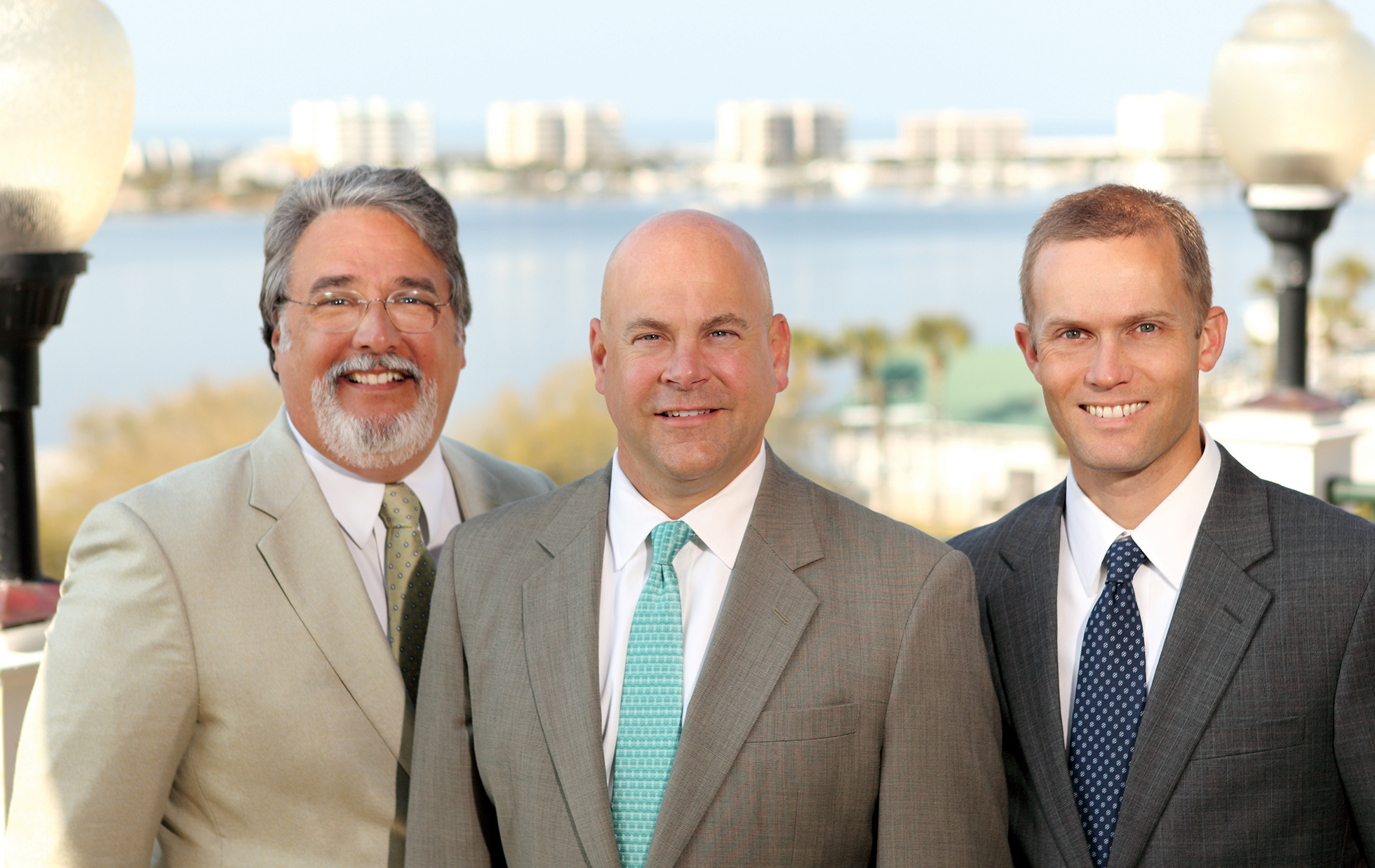
raymond_img_4929-edit
A Taxing Problem for Your Estate
Wealth protection strategies are becoming more complex, and the estate tax is just one cog of the wealth protection wheel
Without intervening action by Congress this year, we will see a significant increase in estate taxes beginning in 2011. You’ve seen the headlines: big-bank and automaker bailouts, loan modifications for distressed homeowners, new home buyer incentives, and now health-care reform. These are just a few components of the massive government spending spree over the past few years. While we could debate the virtues of these stimulus programs, few of us would deny their costs. Judging by our own clientele, astute investors along the Emerald Coast are keenly aware of the immense burden these programs represent to our federal budget for many years to come. So what’s our government to do? We’re willing to bet that higher taxes will emerge front and center, and the estate tax is an easy place for Congress to start.
Why? Because this tax requires no new legislation or effort. Ironically, the Economic Growth and Tax Relief Reconciliation Act of 2001 (EGTRRA) is simply scheduled to expire, which effectively means that estate tax rates will revert to pre-2001 levels—and all Congress has to do is nothing! This change will significantly lower the threshold at which your estate becomes eligible for taxation while raising the levels of tax per bracket.
Most experts agree that Congress will, in fact, allow the EGTRRA to sunset, and then defer other reforms to a later date. Local estate planning attorney Kevin Helmich, of Kevin Helmich, P.A., notes that “given the current economic climate, I’d have to say that any significant estate tax reform is unlikely at this time. While I believe we will eventually see estate tax reform, I do not expect it to come during President Obama’s first term.”
“given the current economic climate, I’d have to say that any significant estate tax reform is unlikely at this time. While I believe we will eventually see estate tax reform, I do not expect it to come during President Obama’s first term.”
The federal government needs more revenues, and they’ll get an immediate boost by letting EGTRRA expire. With this automatic inflow of tax dollars in the bag, Congress is free to explore other areas for increased tax revenues, like investment income. Political rhetoric aside, allowing EGTRRA to sunset is no different than Congress passing a new tax. “Locally, we’ll see a lot of people, whose estates have already lost so much value, become burdened by these higher estate tax rates. The end result is that these estate taxes will further remove money from our local economy,” adds John Marshall, Esq., estate planning attorney with Fleet, Spencer & Kilpatrick, P.A.
These changes will affect many along the Emerald Coast, which clearly warrants the need for a comprehensive review of your wealth protection plan. This is quite a change of direction from recent years, when many families were more worried about the declining value of real estate, 401(k)s and investments, rather than their estate tax rates. After all, who cared about death and taxes when personal wealth was shrinking with every breath? Couple that with the favorable tax rates we enjoyed under EGTRRA, and there was good reason to ignore estate planning for a while. But by now your investments have somewhat recovered and real estate values seem to be turning the corner. So, now is a good time to refocus on your estate plan.
In fact, we find that even many self-described “middle-class” Americans will be affected by the looming change to estate taxes.
Estate planning isn’t just for the wealthy anymore. In fact, we find that even many self-described “middle-class” Americans will be affected by the looming change to estate taxes. For example, these pre-EGTRRA rules provide only a $1 million exemption, beyond which your estate is subject to tax rates as high as 55 percent. Before you assume that your estate won’t qualify for this level of taxation, you’ll want to get educated on what qualifies as “your estate.” In addition to the value of your home and savings, you’ll want to include any additional real estate interests, retirement plans, and the biggie—life insurance proceeds. When added together, it’s easy to see how many local families will quickly surpass $1 million.
Wealth protection strategies are becoming more complex, and the estate tax is just one cog of the wealth protection wheel. When we add in taxes on capital gains, dividend income, IRA and 401(k) distributions, taxable social security income, real estate transactions, etc., we recognize the true value of a comprehensive plan. So, take the time to inventory your estate and to review your plan, your investments, beneficiaries, titling of properties, titling of life insurance and applicable legal documents, such as wills and trusts. You could benefit significantly from a thoughtful review of how your assets will be taxed and distributed upon your death. The best time to do that is now.
So, take the time to inventory your estate and to review your plan, your investments, beneficiaries, titling of properties, titling of life insurance and applicable legal documents, such as wills and trusts.
Changes in tax laws may occur at any time and could have a substantial impact upon each person’s situation. While we are familiar with the tax provisions of the issues presented herein, as financial advisors of Raymond James & Associates we are not qualified to render advice on tax or legal matters.
Kevin Helmich, P.A., John Marshall, Esq., and Fleet, Spencer & Kilpatrick, P.A. are not affiliated with Raymond James & Associates.
— V —
Prepared by David Waddle, Brian Haugen, and Steve Cann of Emerald Coast Wealth Advisors of Raymond James and Associates, which specializes in designing personalized, diversified financial portfolios for high net worth investors along the Emerald Coast.
Share This Story!
KEEP UP WITH THE LATEST STORIES FROM VIE
















































































































































